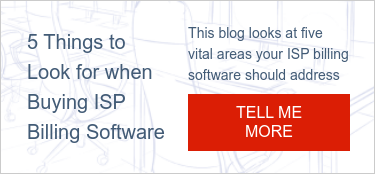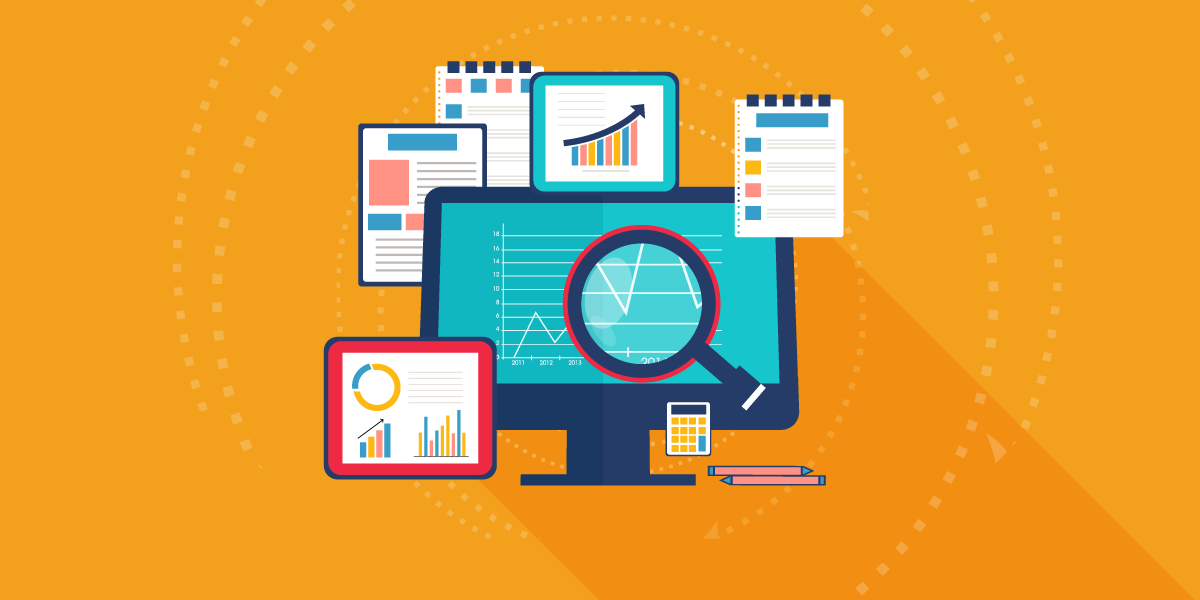Efficient and accurate billing is crucial for businesses. This is more so the case for Internet Service Providers (ISPs) in today's digital world. Automated billing is nothing to be afraid of and plays an essential role here. ISPs that use manual billing systems often encounter many challenges and limitations. In a manual vs automated billing showdown: manual billing processes can be time-consuming, error-prone, and stifling to business growth. Automated billing, on the other hand, has many advantages. It can make operations smoother and ensure accurate billing. It also makes customers happier and sets the foundation for business growth.
|
Included in this post: |
The challenges of manual billing
Manual billing processes present a daunting array of issues for ISPs These include:
-
Billing errors
Manual data input and billing processes are susceptible to human errors. This leads to inaccuracies in invoicing, incorrect charges, and billing discrepancies. Inaccurate invoices, incorrect billing amounts may lead to disputes with customers. These errors not only impact revenue but also strain customer relationships. -
Lack of efficiency
Manual billing involves time-consuming tasks. These include data entry, calculation, generating invoices, and processing payments. These processes are labour-intensive and consume valuable resources. This hinders the profitability of ISPs. These resources could be better utilised in strategic initiatives for growth. -
Complex pricing structure's
ISPs often offer a range of plans and services with varying pricing structures. Manually managing complex pricing can be error-prone and cumbersome. This leads to confusion and dissatisfaction among customers. -
Compliance challenges
Manual billing processes make it difficult to stay compliant with ever-evolving regulatory requirements. Failure to meet compliance standards can result in penalties. This would damage the reputation of ISPs. -
Operational costs
Manual billing systems require significant manpower, increasing operational costs for ISPs. Additionally, manual billing records need physical storage space. This further adds to the expenses. -
Fraud risk
Without proper controls, manual billing systems can be susceptible to unauthorised invoicing. Also, there is an increased risk of intentional alteration of billing information. Invoice amounts, quantities, or other details can be altered. This could be done by fraudulent employees or external individuals. This leads to overbilling, underbilling, or fictitious billing. In either case, that can prove costly or harmful to the ISP.
In the face of all these challenges, many organisations have sought alternatives. There are clear reasons why automated billing solutions are a leading alternative.
The 9 benefits of automated billing
Implementing automated billing solutions can address the limitations of manual billing. They also provide many benefits for ISPs.
These advantages include:
-
Improved accuracy
Automated billing eliminates the risk of human errors. This is done by automating invoice generation, payment processing, and data entry. Calculations are performed automatically, ensuring accurate invoicing and payment amounts. Data is retrieved from centralised sources. Also, error-free invoices are generated based on predefined rules. This ensures that customers receive accurate and consistent invoices every time. This eliminates calculation errors and streamlines the billing process. Automated billing systems also integrate with payment gateways. They automatically update payment information in real time. This reduces the risk of human error and ensures accurate payment processing. Overall, this results in accurate billing, reducing disputes, and improving customer satisfaction. -
Streamlined processes
Automated billing systems streamline the entire billing workflow. This is done from invoice generation to payment collection and reporting. This efficiency allows ISPs to divide resources effectively. It also allows ISPs to focus on core business activities. It really is the solution to your ISP billing software repetitive problems. -
Audit Trails, Historical Data, and Enhanced data management
Automated billing systems maintain a detailed audit trail and store historical data. This has the advantage of easy reference and analysis. There are robust data management capabilities. These allow ISPs to trace any errors back to their source. This aids in data analysis in order to identify areas for improvement. It also provides a comprehensive record of all billing activities. This ensures transparency and compliance. This data-driven approach enables informed decision-making and helps identify growth opportunities. -
Revenue assurance and reduced fraud risk
Automated billing systems incorporate comprehensive checks and balances. These ensure that all billable services are accurately accounted for. This safeguards ISPs' revenue by minimising revenue leakage and improving financial stability.' -
Simplified pricing
Automated billing platforms make it easier to manage complex pricing structures. ISPs can configure the system to apply the appropriate rates, discounts, and promotions. These ensure accurate and consistent billing for customers. -
Regulatory compliance
Automated billing solutions can help ISPs stay compliant with regulatory requirements. These systems provide built-in controls and reporting functionalities. These facilitate adherence to data protection and privacy regulations.
-
Improved customer satisfaction
Billing processes play a crucial role in shaping the customer experience. Lengthy and error-prone billing processes can frustrate customers. This can also hinder their trust in the business. Automated billing processes lead to faster and more accurate invoicing. This enables prompt and error-free billing cycles. This enhances customer satisfaction and strengthens the relationship between ISPs and their customers. -
Data-driven insights
Automated billing systems generate valuable data and analytics. These can provide insights into customer behaviour, service usage patterns, and revenue trends. These insights help ISPs make informed decisions and develop targeted strategies for growth. -
Cost savings and improved cash flow
Efficient billing systems contribute to improved cash flow management. By eliminating manual processes, ISPs can significantly reduce operational costs associated with billing. Automated systems require fewer resources and minimise errors, which reduces costs. They also reduce the need for physical storage, resulting in substantial cost savings.
Why aren’t all businesses already on automated billing systems?
In truth, human beings are creatures of habit, attached to the familiar and wary of change. We even wrote a post about the 5 things that people hate about automated billing over here.
In our experience, some of the biggest hesitations of buying ISP software stem from the following:
- Many businesses may have been using manual billing processes for a long time and employees are accustomed to existing systems
- The idea of migrating to new technologies and processes may be daunting
- Businesses may have great investments in legacy systems for billing and financial management. They may hesitate to switch to automated billing. especially where there are concerns of integration and data migration challenges.
Investing in automated systems may seem costly in the short- term. Post-implementation, maintaining them may also seem costly. A firm with relatively small-scale operations may not perceive the long-term savings.
These are all valid considerations, of course. However, the adaptability and flexibility of businesses is crucial for survival and growth. In this fast-paced digital landscape that we currently operate in, adaptability is key. Automated billing systems allow businesses to better adapt quickly.
Fortunately, SOLIDitech provides a unique automated billing solution. This solution is specifically designed to cater to the needs of ISPs. It offers a comprehensive suite of features. SOLID can address the challenges of manual billing and support the growth of ISPs. With SOLIDitech, ISPs can not only streamline their billing processes. In fact, they can improve data management, ensure compliance, and enhance customer satisfaction.
In this current era where ISPs face intense competition and evolving customer expectations. Automated billing solutions offer a clear advantage. Automated billing addresses the limitations of manual billing. In addition, ISPs can streamline their operations. They can also enhance accuracy and comply with regulations. Lastly, they can improve customer satisfaction, and unlock growth opportunities.
SOLIDitech's automated billing solution stands as a strategic choice for ISPs. SOLIDitech's comprehensive billing system aligns with a shrewd ISP's growth objectives.





.png)



Comment